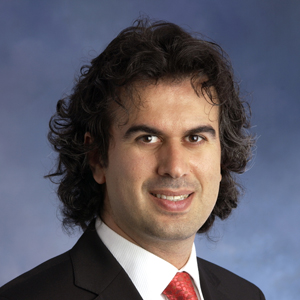In a nutshell
Turkey’s Family Medicine Program, first introduced in 2005, led to reductions in the country’s mortality rates, particularly among the most vulnerable populations – infants and the elderly.
The Program also contributed towards an equalisation of disparities in mortality rates across provinces.
Extending healthcare services to all citizens is critical to achieving universal coverage and improving public health.
The goal of universal health coverage is for all citizens to obtain adequate and basic health services without fear of financial hardship from unaffordable out-of-pocket payments. A question for any country with this ambition is how to establish a healthcare delivery system that can achieve and maintain universal coverage of health services. Countries living up to this challenge have usually taken two main approaches.
In the first group are countries that have taken a predominantly demand-side approach through mechanisms such as health insurance, user fees on the basis of ability-to-pay, and conditional cash transfers. In the second group are countries that have opted for mainly supply-side schemes through extending government-financed public provision of healthcare services, or creating incentive mechanisms that financially motivate providers to expand their coverage.
A notable example of a supply-side healthcare intervention is Turkey’s Family Medicine Program (FMP), which has extended basic healthcare services to the entire Turkish population under a free-of-charge and single-payer system that is fully financed and administered by the central government.
The programme was first initiated as a pilot in 2005 in the province of Düzce, and gradually expanded to cover the entire Turkish population living in all 81 provinces by the end of 2010. Currently, the FMP provides healthcare services to all Turkish citizens, and employs over 21,000 family physicians – all public employees – in roughly 6,768 and 971 family and community health centres, respectively.
There is evidence crediting the FMP with increased patient satisfaction and use of healthcare services, but there has not been a rigorous evaluation of the programme’s impact on measures of health outcomes. This is despite the scope and the scale of the Turkish programme, which makes it arguably one of the most ambitious and comprehensive efforts ever implemented in a developing country with the goal of achieving universal health coverage.
The signature feature of the Turkish FMP is the assignment of every citizen to a ‘family physician’, who constitutes the central and first point of contact for patients. Every Turkish citizen is required to register with a particular family physician who is in charge of providing a wide range of healthcare services at neighbourhood clinics that operate on a walk-in basis.
Through the FMP, essential and primary healthcare services are treated through the family health services located within the communities. For conditions that are more complicated or require specialists, patients are referred to hospitals. Therefore, the FMP also helps to reduce the pressure and the waiting time for more serious and complicated conditions at the hospitals, which in turn might improve health at a lower cost.
Changes in mortality can be attributed to the fact that the FMP has dramatically improved the quality and access to primary care in terms of preventive, curative, and rehabilitative services, especially for pregnant women, new mothers, infants, children, and the elderly, whose healthcare needs are the major focus of the FMP.
The FMP has essentially established a socialised medicine programme for basic healthcare services, as the services are provided free-of-charge by state-employed family physicians. This is in sharp contrast with most other interventions, especially those with demand-side incentives, which primarily focus on the impact of reducing out-of-pocket healthcare expenses.
In our research, a comprehensive evaluation of the impact of the FMP, we analyse data for the period 2001-14, making use of the fact that the FMP rolled out gradually across Turkish provinces and over time in order to identify the programme’s effect on age-specific mortality rates in Turkey.
Our analysis indicates that the FMP has led to reductions in mortality rates. But the benefits associated with the FMP appear to be the strongest among the most vulnerable populations – infant and the elderly for mortality rates.
Furthermore, our results indicate that the programme resulted in a more rapid reduction in mortality in provinces with a higher baseline mortality rate. This implies that the FMP might have also contributed towards an equalisation of disparities in mortality rates across provinces.
Overall, our analysis provides compelling evidence in support of the view that extending healthcare services to all citizens is critical to achieving universal coverage and improving public health.
Further reading
Cesur, Resul, Pinar Güneş, Erdal Tekin and Aydogan Ulker (2017) ‘The Value of Socialized Medicine: The Impact of Universal Primary Healthcare Provision on Mortality Rates in Turkey’, Journal of Public Economics.
A longer version of this summary is available at VoxEU.





